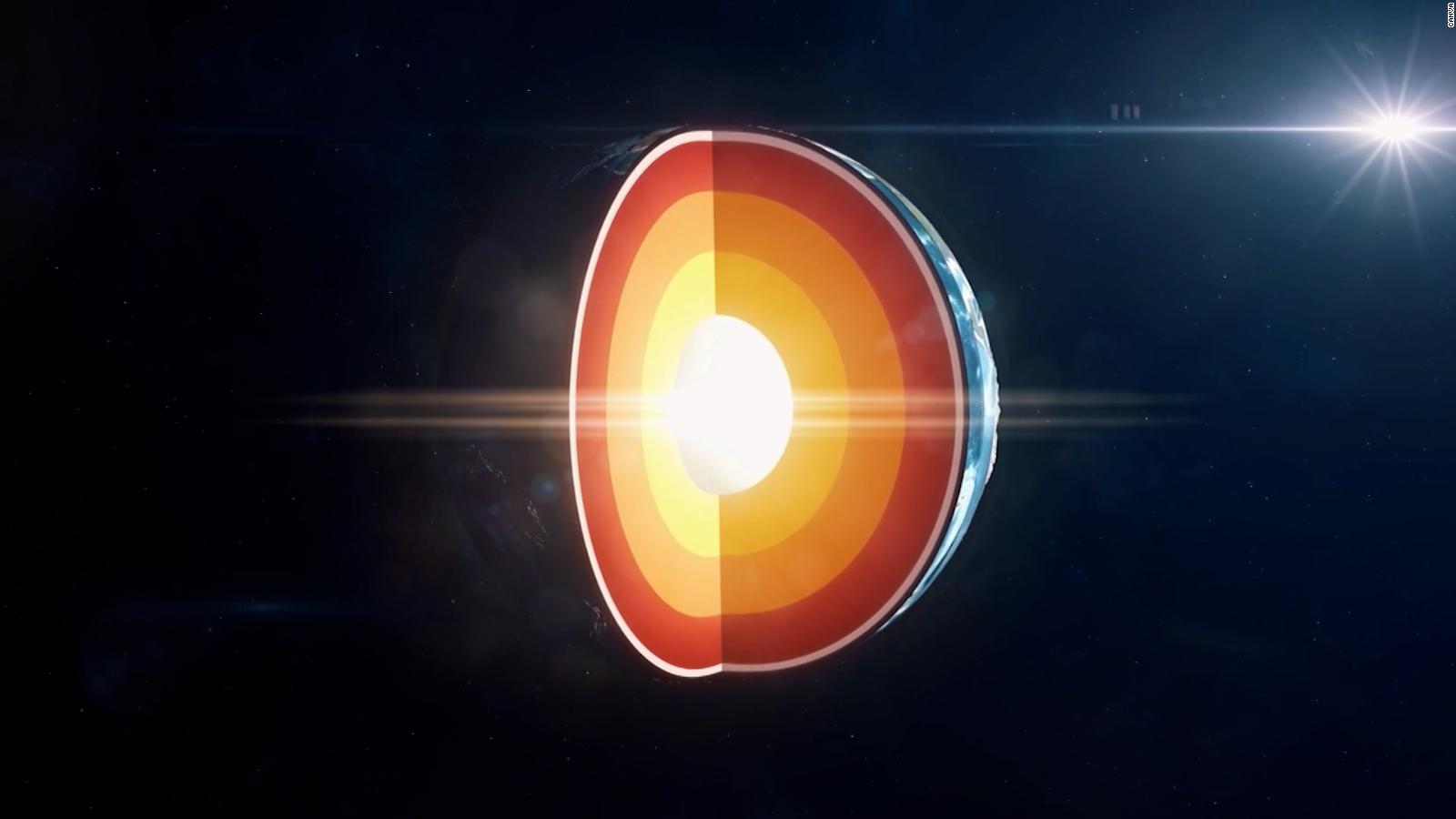(CNN Spanish) – The Earth’s core is one of the most mysterious components of the planet, and one that many scientists have studied for years to find out how it affects the daily lives of the millions of people who inhabit the planet. And a new study suggests that it may have stopped and may be going the other way. But how does this affect our daily lives? We tried to find some answers.
First, a bit of context.
The study was published this week in the journal Natural Earth Sciences found it Earth’s core stops It may now spin away from the surface.
The radius of the Earth’s core is about 3,500 km. It is the size of the planet Mars. It consists mostly of steel and nickel, and contains about a third of Earth’s mass.
Based on the research, the inner core is thought to be dynamically connected to its outer layers, mostly through coupling of magnetic energy to the outer core and gravitational coupling to the mantle, according to Yi Yang and Xiaodong Song, authors of the Beijing university study.
“Changes in the rotation of the inner core — including its gradual reversal in recent years and a possible seven-decade oscillation — will likely have a direct impact on Earth’s magnetic field and rotation, and possibly on some surface processes,” Dr. Song told CNN en Español in an email.
Now, the force of the inner spin is driven by the magnetic field generated in the outer core and balanced by the gravitational effects of the mantle. Knowing how the inner core rotates, Song said, could shed light on how these layers and other processes interact deep within the Earth.
“From the movement of the inner core over the past few decades, we infer that it has likely been in a fluctuation over a period of nearly seven decades,” Song added. “This means that the Earth is an integrated system and that there are dynamic connections between the Earth’s layers.”
Song, one of the study’s authors, told CNN en Español that in 1996 he reported the first observational evidence of inner core rotation in collaboration with Paul Richards at Columbia University. This investigation was made of the temporal changes of seismic waves passing through the inner core.
This initial investigation led to more publications to determine the workings of Earth’s inner core, which eventually led to this new study.
For years, researchers have studied seismic waves from earthquakes that traversed the Earth’s inner core following similar paths since the 1960s to see how fast the inner core is spinning.
How might this affect daily life on Earth?
Now yes, an answer to the million dollar question.
The good news is that it’s much simpler than understanding how Earth’s inner core works.
“We don’t expect something catastrophic to happen,” said the study’s author from Beijing. “It has little impact on our daily lives.”
The change in Earth’s inner core rotation has no direct impact on winter storms or current catastrophic climate change events, Song added, “but may have effects on the geomagnetic field, day length, and climate beyond the long term (decades and more).”
But he added: “We don’t think there is any direct impact on our daily lives.”
The author says the study serves to help better understand “how Earth’s interior works, how the different layers of the system as a whole interact, and how the Earth system (including the climate) evolves cyclically,” he says.
Hrvoje Tcalczyk, a geologist at the Australian National University who was not involved in the study but has long studied Earth’s inner core, agreed.
“The inner core never quite stops”, Tkalcic told CNN.
What this means is that “the inner core is now more in sync with the rest of the planet than it was a decade ago, when it was spinning a little faster,” added Tcalcic, who wrote the book Earth’s Inner Core: Revealed by Seismographs.
“There is nothing catastrophic going on,” Tkalcik agreed.

“Proud web fanatic. Subtly charming twitter geek. Reader. Internet trailblazer. Music buff.”

:quality(85)/cloudfront-us-east-1.images.arcpublishing.com/infobae/TEQF6EONZRFGLLLDIDD4L2O4EE.jpg)

:quality(75)/cloudfront-us-east-1.images.arcpublishing.com/elcomercio/XU32LRAEZFDDPNVHLFU3CKVBYY.jpg)



More Stories
How to create 3D videos with my iPhone, it will be very useful even for your business
NASA discovers an anomaly in the Earth’s magnetic field that could have serious consequences for humans
Can the Earth be divided into two parts?